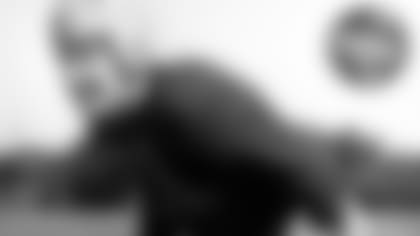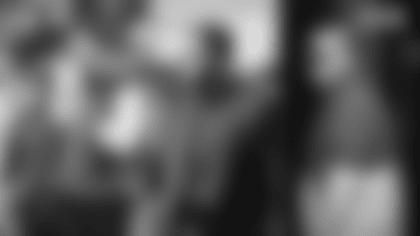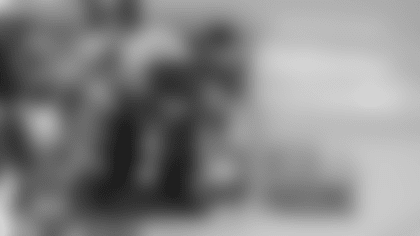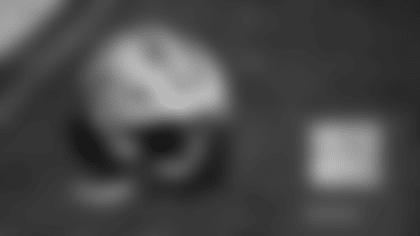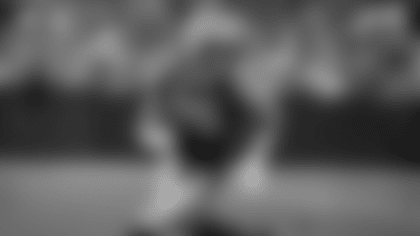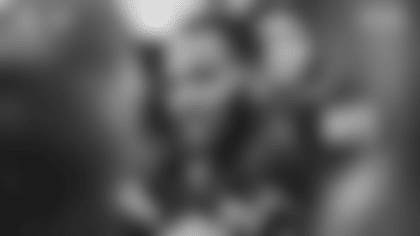Cliff Christl started gathering oral histories with former Packers and others associated with the team in 2000 and will continue to gather them as Packers historian. Excerpts from those interviews will be periodically posted at www.packers.com.
An offensive guard, Ray DiPierro played for the Packers from 1950 to 1951. First-year coach Gene Ronzani signed him as a free agent in July 1950. A year earlier, DiPierro had a free-agent tryout with the Chicago Bears when Ronzani was their quarterbacks coach. DiPierro, who played offensive guard at 5-11 and 210 pounds, appeared in all 12 games as a rookie and started four. In 1951, he was waived four days before the season opener, but returned for the final six games and started two. In 1950, DiPierro had sustained cauliflower ear from the blunt trauma of a cheap shot delivered by the Chicago Bears' Fred Davis. DiPierro retired following the 1951 season. DiPierro played collegiately at Ohio State in 1944 and again from 1946 to 1948.
On playing in all-wooden City Stadium, with its capacity of 25,000, after playing at Ohio State with its concrete horseshoe that held more than 77,000 fans at the time: "We (the Packers players) used to kid around that they drank so much beer, you almost had to tape your ankles to get out of the stadium with all the beer cans under the stadium."
On the locker rooms at City Stadium: "We painted our own helmets and everything, but we had a fun locker room. Like on Monday after a game, when we had a day off, we'd go out there and sit around and drink some beer."
On why the Packers had to paint their own helmets: "The (Baltimore) Colts had plastic helmets they got from Riddell. They weren't happy with them and they sold them to us. So we painted our own helmets in the dressing room. We painted them our color. They were all one color, yellow. We played in them, but the trouble was they didn't have anything but a suspension strap inside. They didn't have any rubber or any padding. They weren't very protective. But we thought they were pretty good."
On being a 5-11, 210-pound guard:"I used to put a weight in a towel in the palm of my hand and I'd pick up two to four pounds. You had different weights (you had to weigh in at). And if a coach saw you coming in down seven or eight pounds after practice – that's why I tried to keep my weight the same on the scale. The only thing I had going as an offensive lineman was that I was willing to throw myself into the meat-grinder."
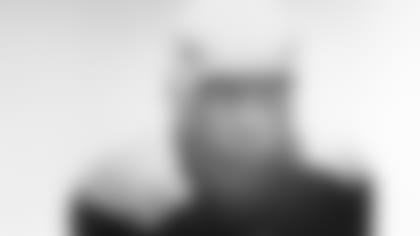
On playing in Green Bay: "I could do no wrong as a Packer player in Green Bay. I had maybe 20 some parking tickets. One year, for training camp, we stayed at the Northland Hotel and I used to pick up a lot of tickets. But the chief of police was Tubby Bero and he was on our board of directors. So we had that connection going for us and we could get in no trouble. And you know athletes are a spoiled bunch."
On his car: "I had a '48 or '49 Chevrolet or Oldsmobile and we used to get eight, nine guys in there. They were all big-(butt) sons of (guns) and we used to drive out to City Stadium from the Northland Hotel."
On the Piccadilly, the players' favorite hangout in the 1950s: "It was a lively place, lot of women, lot of dancing. It was just fun being out. So the Pic was declared off limits for us. Well, one night Ronzani came to the meeting and said, 'Any of you guys have any intention of going to the Piccadilly, it's an automatic $50 fine.' Fifty dollars was a good chunk of money. We only made $5,000 and $6,000. The top players made only $22,000 like Otto Graham. Anyway, I thought (Ronzani) meant it was effective tomorrow. So after the meeting I went over to the Piccadilly. I got out of my car and walked to the door and there was Ronzani. He said, 'I'll take that out of next week's game check and get your fanny home.' He was parked at the Sure Way across the way and got out of his car."
On whether the players hung out at the Piccadilly the night before games: "We were playing the Lions and both of us were staying in the Northland. They were staying there as the visiting team and a lot of us guys used to stay at the Northland. The meetings were at 7:30 and we both got done at the same time and met in the lobby. We were mingling and I saw Ollie Cline, the old Ohio Stater. There was Walt Michaels, Ollie, Tulsa Bob Smith, myself. They said, 'We heard about that Piccadilly.' They wanted me to take my car out to get a drink. So I take two Lion players out to the Piccadilly. We all wanted to be big shots, so we each plunked $10 down and bought drinks. Well, this Tulsa Bob Smith got going on a gal, so I told the bartender, 'Get this guy so drunk. Give him anything he wants.' And I told the girl, 'Get him so drunk that he can't do anything.' (Smith) was so plastered they couldn't get him on the bus (the next morning) where (coach) Buddy Parker was riding. They smuggled him on the second bus, but they couldn't even tape him at the hotel. So I was telling all the guys, 'This guy won't be able to play football. He won't be able to punt the ball.' But drunk as he was, he played one (heck) of a game. He punted like I never saw a Lion punter punt and had a great day. He played defensive halfback. We got beat and I saw (the woman) the next day and she said he got so drunk that he threw up all over her car. I said, 'What did you let him throw up for?'"
On riding the train to road games: "The unwritten word was when you got on the train in Chicago, even though all our tickets were paid for, that you had to have a fifth of liquor for your ticket. So we'd get on the train and I wanted to be one of the boys. North Platte, Neb., was our first watering stop and by the time we got there, all the guys would be out (of their first bottle). They'd all dash across the tracks and get the beer or carry-outs that were there for the passengers, and everybody would come back with more booze. Then we'd get to Ogden, Utah, the next stop, and everybody would go see where they could get something there. There were card games, but Ronzani said he didn't want anybody to lose more than $100 because it would cause too much dissension. Some guys wouldn't go to sleep for the whole 44 hours. They'd just play cards, drink and have fun. We'd have pillow fights, raid the club cars. We were just a bunch of overgrown kids"
On why the Packers traveled by train to the West Coast: "Ronzani used to fly to all the games, but he wouldn't fly to the West Coast. He was afraid to fly over the Rocky Mountains. So we'd fly to Pittsburgh, fly to Detroit, fly to New York, different places. But we'd take the train down to Chicago and then get on the train and go to the West Coast, which was 44 hours from Chicago to Los Angeles."
On training camp at the Minnesota Agricultural Experiment Station, located on the outskirts of Grand Rapids, Minn., in 1951: "We used to kid each other that there was nothing but sheep up there. We'd be doing our exercises and go: 'Bah, bah, bah.' We had meetings every night at 7:30 and two practices a day. Nobody had any transportation to get to a bar."
On Ronzani: "I liked him. Coaches then were a different breed. They were rough and tough. But he was a good, fair man."
On whether Ronzani was much of a disciplinarian: "I couldn't believe how many fans they'd have from Chicago up in Green Bay. I remember Ronzani saying, 'Those fans who want to buy you drinks, treat you good, buy you dinner, don't trust anybody. Most of them are just trying to get information.' He said the syndicate was all over."
On line coach Tarzan Taylor, a native of Superior who had spent more than 30 years in football as a player and coach at the collegiate and professional level: "He was a hard-(nosed) coach. He came out of Ohio State, but back in 1921 and he became a lifelong friend. He was a ruffian, toughian guy. And he was very crude, but well-liked among all sportsmen. He gave me the opportunity to meet some of the great sports celebrities in the country. Tarz and I went to 21 or 22 College All-Star Games after I played with the Packers until they stopped playing the All-Star Game (in 1976). Tarz knew everybody in sports. He was like Grantland Rice. I met the Four Horsemen through him, Red Grange. They all knew Tarz. Now, they didn't know Ronzani, but Tarz could go anywhere and draw a crowd and I kind of became known as Tarz's boy."
On Vic McCormick, an ally of Curly Lambeau in his effort to create a private corporation to take over the franchise in 1949, early 1950: "He was a very rich man in the Green Bay area. Vic adopted Tarz and Tarz adopted Vic. They became very close and Tarz started to ask me to go along. He tried to put it in my head that I had a future there, but I was young and rebellious, 22 years old, and these two old men would take me out. And when Vic would invite me for lunch at the Northland Hotel, right away the women would put on tablecloths. You could see them scurrying. Vic wouldn't eat without a tablecloth. They'd make sure they had all the linens on the table. I got to a point where Vic would take me out in his big limousine and ride me around. He'd take me to De Pere, the college, and show me the buildings he built. He had nothing but money. Anyhow, Tarz was trying to fix me up to be his boy. Sometimes I kick myself because I would have been a big man in Green Bay. Jerry Atkinson (another member of the board of directors) was from Ohio State and was close to Vic. Atkinson advised me about Vic's status over the years."
On Bob Mann, the Packers' first modern era African-American player: "I roomed with Mann on the road. Bob went to Michigan and I went to Ohio State. So we're heading to the West Coast and we get on the train and one of the roomettes was full of crepe paper: scarlet and gray, and blue and gold. They said that's for you and Bobby. I said, 'What's all this about, Tarz?' He said, 'Well, it's a natural rivalry and we put you two boys together.' I said, "For cripes sake, you didn't have to do all that. Bob and I are close.' But (Bob) being the only black kid on the club there were a lot of white kids who had never been in a shower with a black kid before. They didn't even want to shower with him. They had been so indoctrinated in the South. This was 1950. And I got a lot of backlash. But I got along extremely well with Bob. I had grown up in the produce business and had dealt with a lot of black people. Bob was a much better person than I was. He used to pray at night and let out his emotions. He was an extremely quality person."
On how many players were opposed to Ronzani integrating the team: "Most of the guys liked (Mann). Like I said, Bob was a quality person. But there were a few. Like Rebel Steiner – these were hard-(nosed) Southern boys. It was tough for them to get involved with a black."
On Dick Afflis, a teammate in 1951 who later gained fame as the pro wrestler, Dick "The Bruiser": I was very close to him. Dick got mad on the sideline once and acted like he was going to beat up on Ronzani. He threw his helmet down and went into one of those, 'Grrrrrrrr.' It was during a game and I guess Ronzani backed down. It scared the (heck) out of him. But Afflis was a good guy. He was tough, but he was a pussycat."
On Don Stansauk, another teammate who became "Hard Boiled" Haggerty, another pro wrestler: "Strange character. He wasn't one of the regular guys. He didn't have a lot of buddies. Just kind of different."
On Ed Neal, another teammate and a blacksmith by trade: "Ed Neal, the 300-pounder. He was a nice guy. He used to take a pop bottle and put a towel around it so he wouldn't get cut in the crotch of his arm, a Coca-Cola bottle, and break the (darn) thing. And he could palm the cap and take the cap right off a Coke bottle."
On Packers Hall of Fame fullback Ted Fritsch: "Ronzani was always making him run laps after practice with one of those rubber sweat suits just to lose weight."
On Jack Cloud, another fullback who later coached at the Naval Academy for more than 30 years: "Jack Cloud got a few too many drinks in him one night and slow-rolled his car into the (East) River. He went down the embankment and landed right in the river. But I think the only thing that came out in the paper was that Cloud got hurt in practice. Nobody made a fuss about it. They kept the drinking incident under the covers."
On visiting Cloud in the hospital: "I think maybe it was Jug Girard, Larry Coutre and myself. We decided to visit Cloud at St. Vincent Hospital and we made some drinks before we went. So (the bartender) made a gallon of solid martinis. We all had our bottle and we went into the hospital. We camouflaged our stuff. We go in to see Jack and we all start to get drunk. I get to the point where I pass out. Jug Girard was a real character. Silly guy, crazy guy. He goes running up and down the halls yelling, 'Stretcher, stretcher.' They try to quiet him down, but they finally give him a stretcher. It was like one of those from World War I: two poles, two arms and a piece of canvas. They put me on this stretcher and they run me down the hallway to the main entrance and trot me right out the front door. My car is right there and they throw me in the back seat. It had one of those humps for the back axle and they threw me on my back and I couldn't practice for a few days. But the word got out and they're saying, 'You're the first guy ever to get carried out of a hospital.'"
On Ed Ecker, an oversized lineman for his day at 6-7, 276 pounds: "He was so huge and yet so overbearingly polite and kind that we called him and his wife, 'Mama and Papa Ecker.'"
On Fred Miller, who was president of Miller Brewing Co. and served as an honorary coach of the Packers under Ronzani: "We had Miller High Life on the plane all the time. If we had a party on the road, like if we were at a hotel in Los Angeles, there would be Miller High Life for us. He made sure we were always taken care of. But he didn't help coach. We never saw him that much."
DiPierro died in 2014 at age 87. The excerpts above were taken from an interview conducted in 2001.



